
What to do when you've lost your way
We are living in challenging times. Is there anyone whose life hasn’t been turned upside down in the past year? There have been so many unique difficulties, nothing for which we could have prepared.
Life's Certainties- Death, Taxes, and Stress
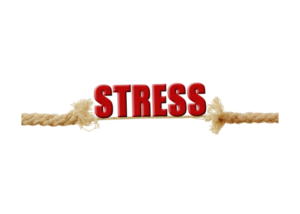
For those of us with FND, these challenges can be a recipe for disaster. Our bodies don’t react kindly to uncertainty and stress. I don’t know anyone who likes stress, but when you have Functional Neurological Disorder, your body may just announce how you’re feeling to the world. Personally, I’m not a fan of this problem. If I feel stressed, I’d rather experience that privately, not show how stressed I’m feeling to anyone watching and noticing the stutter or other signs of diminished function.
It may be true that death and taxes are two of life’s certainties, but I’ll add stress to the list. We are all guaranteed to experience things that we would prefer not to. Financial struggles, relationship issues, illness, the loss of loved ones, global pandemics…the list is endless.
This morning I was reading an article about FND that noted that stress was the most common trigger for symptoms mentioned by patients. I would agree with that. With stress comes a flood of neurochemicals that make it difficult for our bodies to function at their best. I’ve found that maintaining a peaceful mental state is my best bet for staying symptom free, but sometimes that’s just not possible. What do we do then?
My 2020-2021 Stress Story
Feel free to skip this section if you don’t want to hear my sad story of a difficult year! I don’t mind; I recognize that you have your own sad story! We all do. This year has been unprecedented in our lifetimes in the amount of difficulty, grief, and challenges we’ve had to face.
Moving, moving, and moving again...
We sold our last house on April 1, 2020. We were excited to be building our dream home on a beautiful forested lot in Colorado, but since we don’t have unlimited funds, we had to be mortgage free to qualify for a construction loan. We decided to embrace the freedom of being debt free by traveling around the country in our RV. I was excited to see places I’d never seen before, while saving money for our new home by not paying for temporary housing.
We packed everything up except for a few essentials and prepared to begin our RV adventure on April 1. Ummm, wait a minute. Late March, the realities of COVID-19 were becoming concerning. There were rumors of lockdowns, closed borders, and closed campgrounds. How could we shelter in place if we had no place to shelter?
Suddenly, life on the road started looking like a very bad, possibly dangerous idea. With a week before closing on our house, we decided we had better find a more stable living arrangement. Thankfully we were able to find a cute little cabin in the mountains and I got to live out my fantasy of being a hermit. We rummaged through our already-packed belongings and salvaged enough to set up home in the cabin. We had a year lease, plenty of time for our new home to be built.
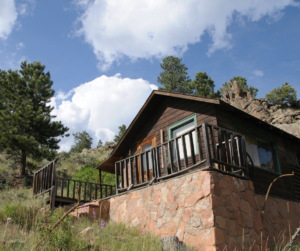
Except that it wasn’t. The pandemic led to labor shortages and slow-moving government planning departments which were needed to approve permits. More recently, skyrocketing prices for construction materials have added another barrier. Our year lease ran out at the end of March, and unfortunately our landlord decided not to continue to rent his property.
RV life
On the positive side, things were looking up as far as the pandemic was concerned. Vaccines were becoming available and we were thrilled to be old enough to be among the first vaccinated. It seemed like it would be possible to return to our plans for an RV adventure. New Mexico was our first destination, not too far from home and where temperatures were significantly warmer.
Early in our trip, we had a minor RV mishap. A broken valve in our water storage tank led to a flood and a day devoted to repairs. We handled the crisis well and remained positive, however, it felt like our 24-foot RV was shrinking. Maybe we should have thought about the reality of such close quarters for 2 adults and 2 dogs.
Our newest granddaughter was scheduled to arrive on April 16, so we planned our camping itinerary to return to Colorado for her birth. If you’ve never lived along the front range in Colorado, you might be surprised to learn that March and April are our snowiest months. Predictably, there was a snowstorm the day she was born, which prevented us from meeting her for a few days. (FYI- she’s perfect! No grandma bias, I promise!)
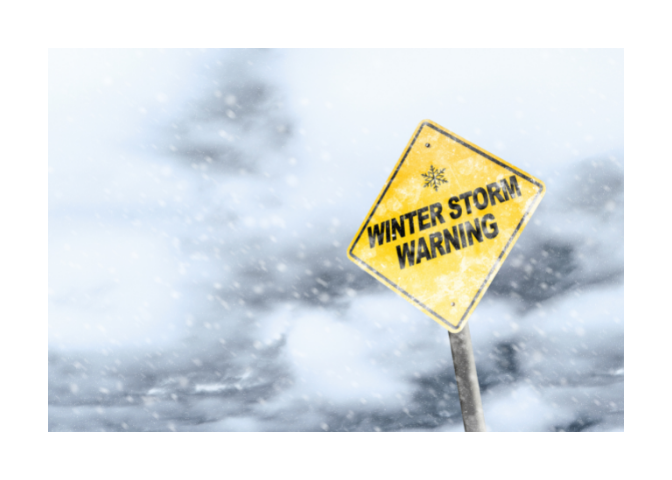
RV Crisis
While camping in Colorado waiting for her, we hunkered down in our RV and turned up the heat. Snuggling into our warm bed, we were rudely startled awake by the piercing sound of the carbon monoxide alarm. Outside, the storm was howling. I really wanted to just ignore the obnoxious noise and drift… back…to… sleep….
NO! My brain was working well enough to realize that this was a horrible idea. The soporific effects of carbon monoxide are nothing to ignore! We opened windows, turned off the propane, and tried to figure out what to do next. Were we wiling to sacrifice our heat during a raging snowstorm? Should we find a hotel? We searched through Google to find a solution. Gassy dogs were one possible cause of the alarm going off, but our dogs are little and that seemed unlikely. Could the alarm be faulty? Maybe, but it didn’t seem like a good idea to take a chance, especially since we had noticed the smell of propane.
Finally my husband decided that the source was probably the hot water heater, which we didn’t need in the middle of the night. He braved the snowstorm and went outside to disconnect the hot water connection. Hallelujah! We were able to have heat again and survived the night.
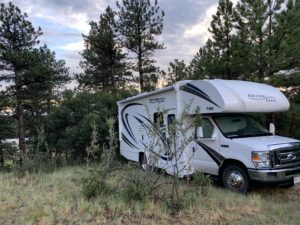
Changing our plans, we headed south to escape the freezing temperatures. Back in New Mexico, we tried to seal up any potential areas that could be allowing gas to leak into the RV. We hoped that would be the end of that problem. If you’ve never owned an RV, I’ll let you in on a dirty secret. When something goes wrong, finding service is next to impossible. Luckily my husband and I are pretty good problem solvers and DIY-ers and had managed most repairs, like the broken water valve, on our own.
We were hopeful but unfortunately not successful. In New Mexico we again were rudely awakened by the carbon monoxide alarm. At least it wasn’t snowing, so we resigned ourselves to not having hot water except during the day when we could open all of the windows and turn on fans. We tried to find someone to repair the gas leak, but it looked like we wouldn’t be able to get an appointment for 2-3 months. That might work if you are occasional campers, but when you live in your RV, it’s a problem. Finally we found a service center that understood the urgency of the issue and got us in the next day. Unfortunately, they were a 3 ½ hour drive away, but at that point we were thrilled to find someone to fix it.
I’ll end the saga of our RV misadventure, but in the end, it just didn’t work for us. Tight quarters, lack of stability, no roots, no home base near our grandchildren – we learned that we had needs that RV life couldn’t provide. The stress was letting me know that my FND was there. I didn’t totally lose function, but I recognized the signs that told me that my body was not happy and could break down. Decreased energy, the sensation of weak, heavy legs, occasional speech issues, increased brain fog, more anxiety and irritability were familiar signposts that I feared could lead to disability.
The End of the Road
We found an apartment in the town where we are building our home. Once again, we dug through boxes already packed and moved them to the apartment. I’m so tired of boxes, but my body is settling down again and obviously happier to once again have a home base. We sold the RV because it was a great time to sell, and frankly, we are just done with the challenges of RV ownership. It’s time to focus our time and money on our new home.
For awhile, I felt like I had lost my way. I forgot the things that kept my FND in control. It’s only natural when we are in stressful situations to focus on the issues at hand. When the carbon monoxide alarm is blaring, that might not be the time to pause and meditate.
Once the immediate crisis is over, there are things you can do. I had to remind myself of the things that had helped me in the past and start prioritizing them again. I’m happy to report that I’m back to feeling stable and in control.
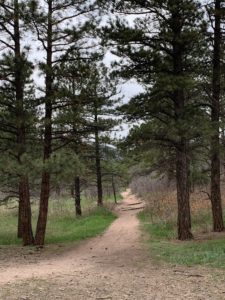
Practical Tips for Finding Your Way Back

* Simplify *
- Cut out the non-essentials. I hated doing this. I was working on some projects that were important to me, but I had to remember that my health is my priority.
*Rest, then rest some more*
- Increased stress requires more rest time. For awhile my fatigue was so bad that I was concerned that I was moving into ME/CFS territory, but honoring my body’s need for more rest and accepting a daily nap time brought relief from the fatigue after a few weeks. It was important to tell myself that it would get better. Your brain tries to meet your expectations.
*Get Help*
- Recruit help when you need it. For me, this included a few sessions with my therapist. She helped me remember how to restore balance and reminded me of the importance of staying grounded.
*Do the things that help YOU*
- I needed to return to making my well-being my #1 priority. This may look different for everyone. My personal brain rechargers include meditation, breathing exercises, lots of time in nature, swimming, art and other creative projects, and good nutrition
